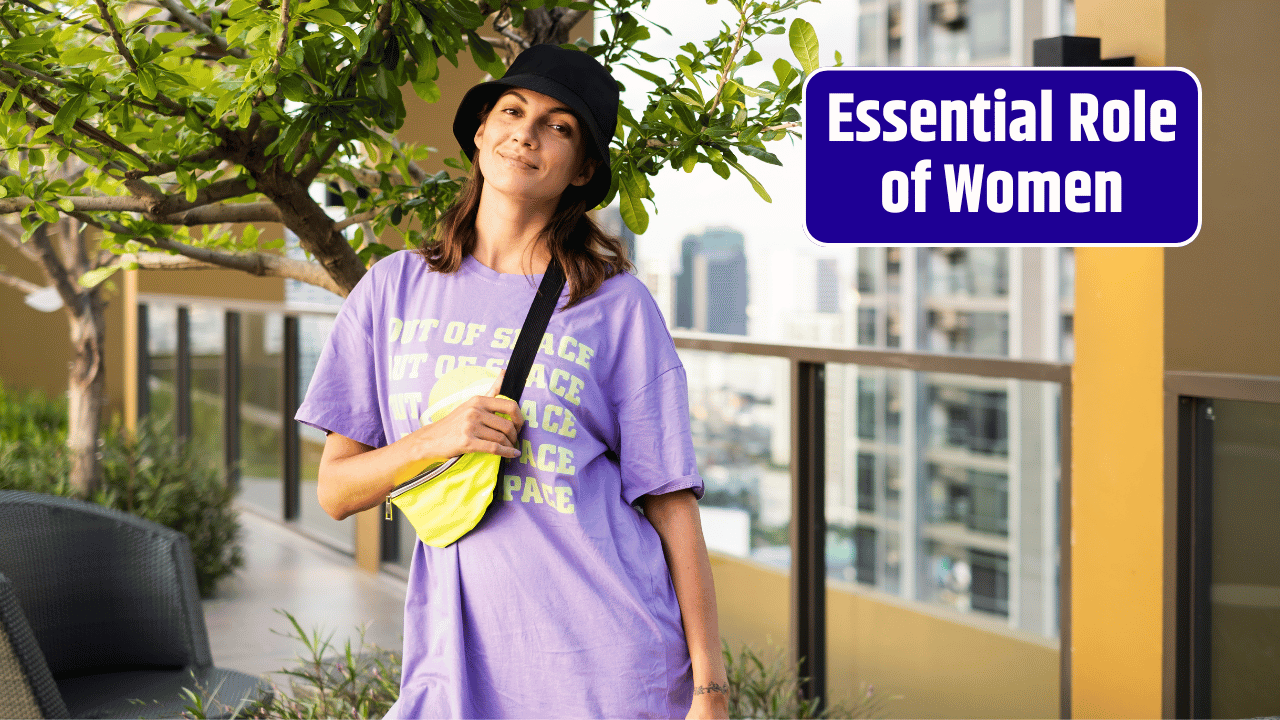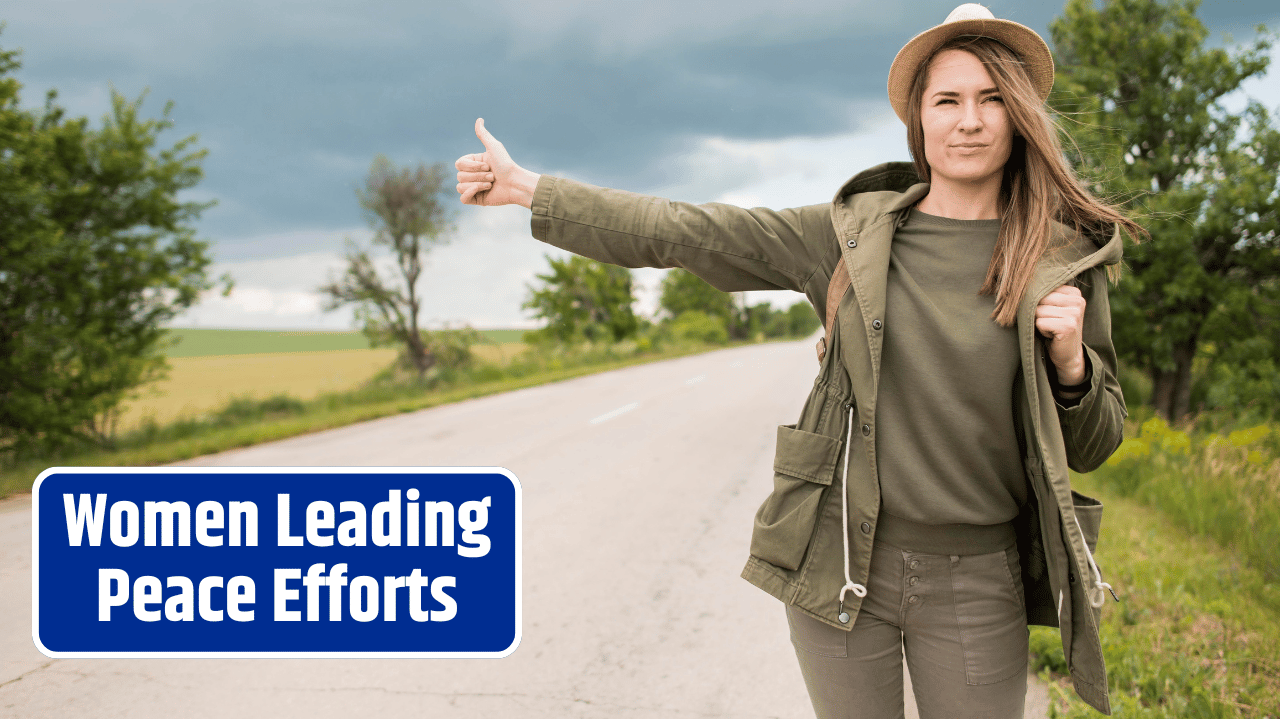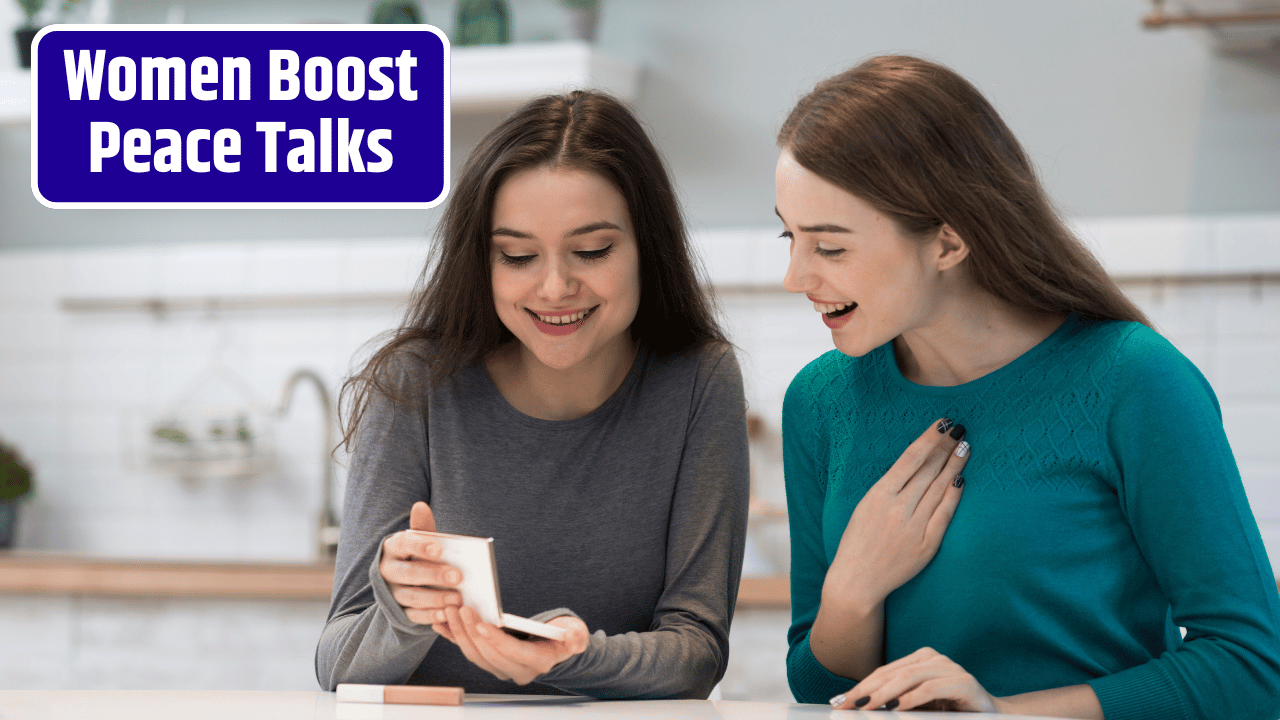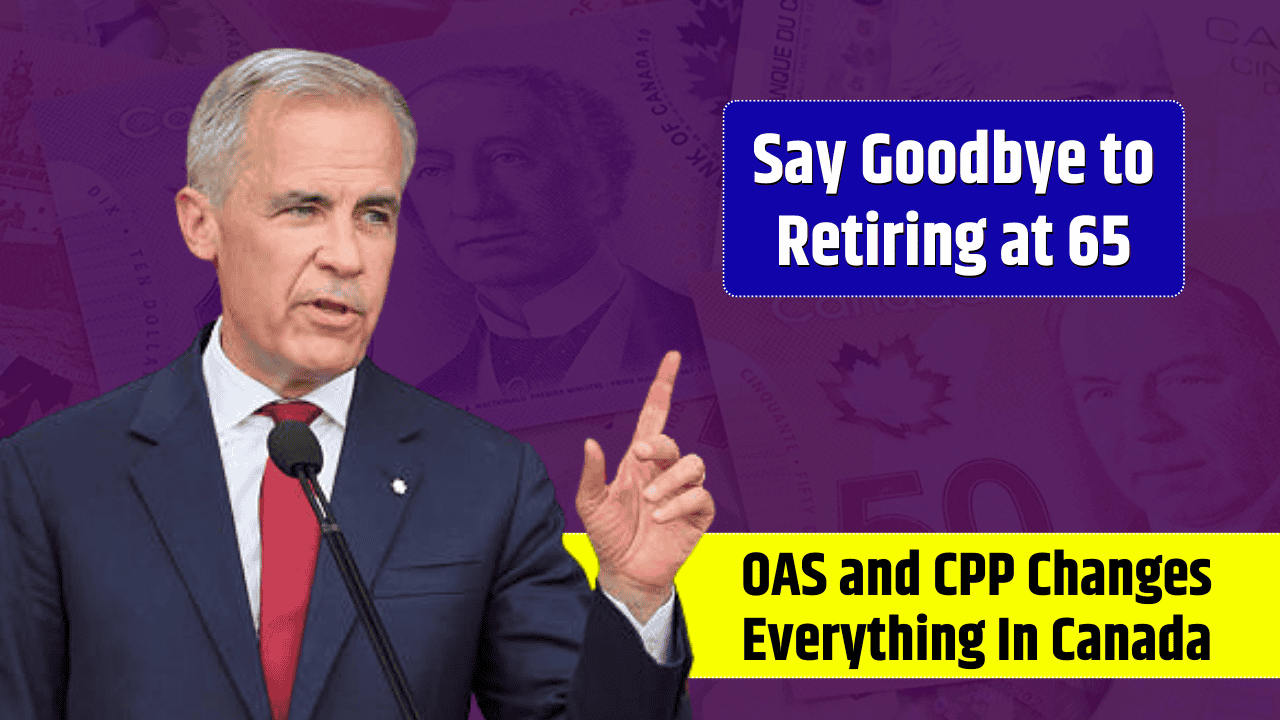It’s funny how “peace talks” sounds like something calm and tea-sipping — a long mahogany table, maybe a vase of flowers, diplomats in suits nodding politely. But in reality? They’re often smoke-filled rooms (sometimes literally), high-stakes poker with lives on the line. And too often, the people most affected by the war — especially women — aren’t even in the room. Which is a bit like trying to fix a house without talking to the people who live there. Sure, you can replace the roof, but you’ll probably miss the fact that the kitchen leaks when it rains.
Table of Contents
The Data Doesn’t Lie
A 2015 study by the UN backed by extensive field research found that peace agreements are 35% more likely to last 15 years or longer when women are involved in the negotiation process. Why? Because women tend to bring issues to the table that male-dominated delegations historically overlook — like community rebuilding, food security, education, and local policing. These aren’t “soft” topics; they’re the scaffolding that holds long-term peace together.
Think of it this way: men in these talks often focus on stopping the shooting; women push for making sure there’s something worth living for when the shooting stops. That’s not a criticism — it’s an expansion of priorities. And frankly, it works.
| Impact of Women’s Participation in Peace Talks | Observed Outcome |
|---|---|
| Inclusion in negotiation teams | Agreements 20% more likely to be implemented successfully |
| Gender-sensitive clauses in agreements | Higher rates of post-conflict stability |
| Community-driven agenda setting | Increased trust in peace process |
| Representation in monitoring mechanisms | Greater accountability and compliance |
The Symbolism Trap
Here’s the tricky part: sometimes governments or warring factions add one or two women to a peace delegation just for optics. They’ll sit her in the photo line-up, let her read a scripted opening, and then sideline her when the “real” bargaining starts. This isn’t inclusion — it’s tokenism dressed up in a power suit.
That’s why international guidelines like UN Security Council Resolution 1325 are so important. They don’t just call for women to be present; they demand women have actual influence over decisions.
Real-World Wins
Colombia’s 2016 peace agreement is a shining example. Women made up a third of the negotiating team and pushed hard for rural reform, gender-based violence protections, and reintegration programs for female ex-combatants. Those provisions are now pillars of the agreement — and have helped keep the deal alive despite political shifts.
In Liberia, women didn’t just join the table — they forced the table to happen. The Women of Liberia Mass Action for Peace movement, led by Leymah Gbowee, staged sit-ins, formed human barricades, and even locked negotiators in a room until they signed a ceasefire. It wasn’t polite, but it was effective.
The Stakes Are Bigger Than “Fairness”
We need to stop framing women’s participation as a moral checkbox and start treating it as a strategic advantage. Excluding half the population’s perspective doesn’t just undermine fairness; it actively sabotages the durability of peace. Wars don’t end when the ink dries. They end when communities believe they have a stake in the new order. Women are often the bridge between policymakers and the grassroots — and without that bridge, you’re left with a chasm for unrest to seep back in.
Fact Check
- Women’s participation in peace talks has been studied extensively by the UN, Georgetown Institute for Women, Peace and Security, and multiple conflict-resolution think tanks.
- The 35% statistic is from UN Women’s 2015 analysis of 182 peace agreements signed between 1989–2011.
- Countries with women in senior peace roles have consistently shown higher rates of agreement implementation and stability (source).
FAQs
Why are women still underrepresented in peace talks?
Cultural norms, political gatekeeping, and security risks often limit women’s access to these negotiations.
Do women negotiate differently than men?
Research suggests women often take a more collaborative and inclusive approach, though this isn’t universal.
Are there examples where women’s participation failed to improve peace outcomes?
Yes, when women are included only symbolically without decision-making power, outcomes often mirror male-only talks.
Is there legal backing for women’s inclusion in peace processes?
Yes, through international law like UNSCR 1325 and national gender equality policies in many countries.














